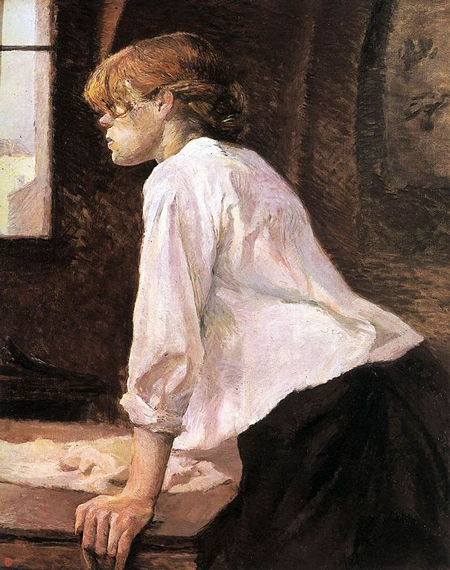Thursday
This past weekend, to celebrate my mother’s wedding anniversary—she and my father had been married 65 years when he died—we went out of the Sewanee Inn to celebrate. Everyone in our party of eight had been vaccinated (although we still wore our masks when we entered and the tables were six feet apart), and the occasion was joyous.
Yet even as a bright new day beckons, millions of Americans—mostly Republicans—are resisting the vaccine. Even as we’ve been handed this path back to normality, they’re essentially saying they want to remain in the throes of the pandemic. A James Joyce story from Dubliners comes to mind.
In “Eveline,” a young woman living a very hard life is suddenly presented with an exit. A man who has fallen in love with her wants to marry her and take her to Buenos Aires. The story shows her wrestling with the decision.
She had consented to go away, to leave her home. Was that wise? She tried to weigh each side of the question. In her home anyway she had shelter and food; she had those whom she had known all her life about her. O course she had to work hard, both in the house and at business. What would they say of her in the Stores when they found out that she had run away with a fellow? Say she was a fool, perhaps; and her place would be filled up by advertisement….
But in her new home, in a distant unknown country, it would not be like that. Then she would be married—she, Eveline. People would treat her with respect then. She would not be treated as her mother had been. Even now, though she was over nineteen, she sometimes felt herself in danger of her father’s violence. She knew it was that that had given her the palpitations… [L]atterly he had begun to threaten her and say what he would do to her only for her dead mother’s sake. And now she had nobody to protect her….Besides, the invariable squabble for money on Saturday nights had begun to weary her unspeakably.
Frank, the man she will marry, is like a post-Covid world—which is to say, a breath of fresh air. He introduces her to a whole new way of living:
He took her to see The Bohemian Girl and she felt elated as she sat in an unaccustomed part of the theatre with him. He was awfully fond of music and sang a little. People knew that they were courting and, when he sang about the lass that loves a sailor, she always felt pleasantly confused. He used to call her Poppens out of fun. First of all it had been an excitement for her to have a fellow and then she had begun to like him. He had tales of distant countries.
Weighing on her mind, however, is a promise she made to her mother on her death bed. Apparently the phrase “derevaun seraun” is garbled Gaelic although interpretations include “the end of pleasure is pain” and “the end of the song is raving madness”:
As she mused the pitiful vision of her mother’s life laid its spell on the very quick of her being—that life of commonplace sacrifices closing in final craziness. She trembled as she heard again her mother’s voice saying constantly with foolish insistence:
“Derevaun Seraun! Derevaun Seraun!”
She stood up in a sudden impulse of terror. Escape! She must escape! Frank would save her. He would give her life, perhaps love, too. But she wanted to live. Why should she be unhappy? She had a right to happiness. Frank would take her in his arms, fold her in his arms. He would save her.
Those Republicans who are refusing vaccinations are under their own spell. They’ve been living in an alternative reality for so long, bashing science for so long, that they can’t accept this miraculous way out when it is offered.
Meanwhile, the rest of us are like Frank calling out,
“Eveline! Evvy!”
He rushed beyond the barrier and called to her to follow. He was shouted at to go on but he still called to her. She set her white face to him, passive, like a helpless animal. Her eyes gave him no sign of love or farewell or recognition.
It’s worth noting that Eveline behaves like a victim of abuse. The father who beats her seems more real to her than the fiancé who promises her a better life. “Sometimes he could be very nice,” she recalls. In our case, the abusers are Donald Trump, cynical GOP politicians, and a cynical Fox News.
On National Public Television news segment recently showed life in Israel following its successful vaccination program. Using vaccination passports, Israelis were working out in gyms and dining in restaurants. Life looked like it used to be. Thinking of how our vaccine resisters seem intent on blocking that prospect for the rest of us, a passage from Henry Vaughan’s “The World” comes to mind:
O fools (said I) thus to prefer dark night
Before true light,
To live in grots and caves, and hate the day…


